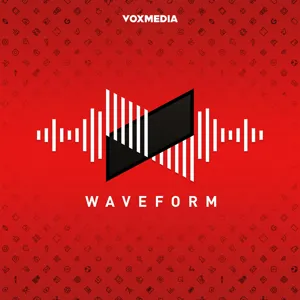Podcast Summary
First unionized Starbucks store in the US: Workers' rights and collective action can lead to improved working conditions, even in large corporations
The pandemic has led to a reevaluation of work, productivity, and employee well-being. As heard in the TED Radio Hour episode, a barista named Michelle Eisen from Buffalo, New York, shared her experience of working long hours at Starbucks and the increased demands during the pandemic. When the opportunity arose for her and her coworkers to form a union, she saw it as a chance to make a positive change from within the company. Despite initial resistance from Starbucks executives, the unionization effort succeeded, making history as the first unionized corporate Starbucks store in the country. This event highlights the importance of workers' rights and the potential for collective action to improve working conditions. Additionally, the TED Radio Hour series, "Work Play Rest," explores the evolving notions of work, productivity, and rest in our society.
Power dynamics shifting towards employees: Employers are increasing wages and improving working conditions to retain talent in response to record-breaking numbers of workers quitting and strikes. Tech workers are organizing for ethical reasons and demanding a voice in company operations, signaling a permanent redefinition of the employer-employee relationship.
The power dynamics between employers and employees are shifting, leading to a renewed focus on job quality and employee well-being. This trend is evident in record-breaking numbers of workers quitting their jobs, strikes, and union formations across various industries. Employers are responding by increasing wages and improving working conditions to retain talent. In the tech industry, where unions have been rare, workers are organizing for ethical reasons and demanding a voice in how their companies operate. This change is driven by a growing recognition that work is just one aspect of people's lives, and employers must acknowledge and support their employees' whole selves. This shift may represent a permanent redefinition of the employer-employee relationship.
Labor shortages and the importance of employee well-being: Focusing solely on reducing labor costs can lead to long-term issues, as labor shortages and unionization highlight the importance of prioritizing employee well-being in business operations.
Focusing solely on reducing labor costs as a means to cut expenses for businesses can be short-sighted and potentially detrimental in the long run. The ongoing labor shortages experienced by some companies, such as FedEx, serve as a prime example. Meanwhile, companies with unionized workforces, like UPS, have not faced the same issues. This trend raises questions about the entire capitalist system and the prioritization of shareholder value over employee well-being. Co-worker.org's Jess Kutch believes we are at the beginning stages of a prolonged period of labor activism in the United States and beyond. These sentiments are reflected in the increasing number of workplaces undergoing unionization. The broader implications of this shift are being felt and questioned by many.
From scarcity to opportunities in tech: Growing up in disadvantaged backgrounds can limit one's perspective, but entering new environments can lead to unexpected opportunities and personal growth in the tech industry.
Growing up in a disadvantaged background can make one feel that struggling and striving to survive is the norm, but entering a new environment like technology industry can lead to unexpected opportunities and personal growth. The speaker, Irma Alguin, shares her experience of growing up in a farming community in Fresno, California, where her immigrant grandparents worked as field laborers. She recalls feeling that scarcity and hardship were the reality for everyone around her, but later realized that not everyone lived that way. When she went to college and pursued a degree in computer science, she discovered that the industry was more accessible than she thought, and her background, including being a woman, Latina, and queer, did not hinder her success. Ultimately, she found a place for herself in the industry and experienced the transformative impact of technology on her life, leading her to wonder how it could similarly benefit entire communities.
Building tech economies in underestimated cities: Focusing on underestimated cities, Bitwise Industries addresses societal challenges to create opportunities for individuals to learn technical skills, unlocking untapped talent and changing future generations' realities.
Instead of looking for opportunities in traditional tech hubs, Herman and Bitwise Industries focus on underestimated cities to build tech economies from the ground up. They address the less obvious challenges, such as child care, transportation, hunger, and financial stability, to create room for individuals to learn technical skills. By removing these barriers, Bitwise provides access to a wide population of untapped talent and changes the reality for future generations. The cost of this initiative is shifted from struggling families to entities that benefit most from their potential, such as governments, corporations, and philanthropy.
Training 5,000 underrepresented students in tech skills in Fresno, leading to community transformation: Bitwise Industries trained 5,000 underrepresented students in tech skills, resulting in significant salary increases, community development, and the creation of new businesses, while ensuring affordability and community involvement.
Bitwise Industries, a workforce development organization, has successfully trained over 5,000 students in tech skills in underestimated cities like Fresno, with 80% of them securing technical employment. These students, often from demographics underrepresented in tech, earn significantly higher salaries, leading to positive community changes such as increased homeownership, new businesses, and civic engagement. However, there's a concern about gentrification and affordability as tech jobs can increase living costs. Bitwise aims to address this by involving the local community and ensuring that the tech industry benefits everyone. Moreover, the demand for entry-level tech workers is growing as more companies become technology-enabled, making these jobs transformative for individuals and communities.
From survival mode to success: Embracing agency and accomplishments: Irma Alguin shares her journey from hardships to success, emphasizing the importance of recognizing our potential and using past struggles as armor in a new reality. The conversation also explores the impact of automation on employment and the need for adaptation and evolution in the future of work.
Our capabilities and potential are often underestimated, and we should expect more for ourselves. Irma Alguin, the co-founder and CEO of BitWise Industries, shared her journey from survival mode to success, encouraging listeners to embrace their agency and accomplishments. She questioned the purpose of her past struggles and how to use her "armor" in this new reality. Despite her current privileges, she grapples with feelings of unease and uses her energy to ensure others can experience similar moments. The discussion also touched on the increasing automation of jobs, leaving some workers unemployed. The pandemic is accelerating this trend, forcing companies to consider investing in machines instead of hiring people for entry-level positions. This raises questions about the future of work and the importance of adapting and evolving.
Automation is taking over jobs previously thought safe: Focus on enhancing human skills like compassion, critical thinking, and moral courage to make jobs less replaceable by machines
The ongoing employment crisis is accelerating the automation process, leading to machines taking over jobs that were previously thought to be safe from automation, even those requiring college education or higher. The jobs most at risk are those that can be automated entirely, such as manual labor and cognitive work. However, instead of competing with machines, experts suggest focusing on enhancing human skills, particularly those that require compassion, critical thinking, and moral courage. By making our jobs more human and expressing our unique perspectives, we can make ourselves less replaceable and feel more optimistic about our future in the workforce.
Human connection and experience are valuable commodities that can't be replicated by machines: Despite automation and technology advancements, jobs involving emotional needs and human connection remain safe from replacement, as they offer unique value that machines can't replicate.
While automation and technology can be effective in certain areas, jobs that involve meeting people's emotional needs are much safer from being replaced. Human connection and experience are valuable commodities that cannot be replicated by machines. The success stories of businesses like Marcus Books, which prioritize community and human interaction over scalability and efficiency, serve as reminders of this. The pandemic has highlighted the importance of emotional support in various fields, such as education and healthcare, and has shown that humans are better equipped to provide these services. Ultimately, the economy is shifting towards a model where both machine-driven and human-driven industries will coexist and thrive in their unique ways.
Preparing for an AI-driven workforce: The importance of emotional intelligence and human skills: Governments and societies need to provide comprehensive support like job counseling, retraining programs, and universal basic income to help individuals adapt to the changing job market as AI takes over jobs.
As we move towards an AI-driven workforce, there's a growing need for emotional intelligence and human skills. This includes empathy, social awareness, and complex understanding of human dynamics. To prepare for this, there are various programs and courses available to help individuals improve these skills. However, with the expected decrease in jobs due to automation, governments and societies need to provide more comprehensive support, such as job counseling, retraining programs, and even universal basic income, to help people adapt to the changing job market. Learning from countries like Japan and Sweden, who have implemented systems to help workers during times of technological change, can provide valuable insights. Ultimately, it's important to recognize that the transition to an AI-driven workforce won't be seamless, and a broader safety net will be necessary to help individuals make the shift.
The Future of Work with Technology: As technology advances, the value of human skills and uniquely human work increases, and there's a promising sign that future economies will place a higher value on humanity.
As technology advances and automation becomes more prevalent, not everyone will be able to transition seamlessly into new jobs. Human skills and uniquely human work will become more valuable. Old ideas like collective bargaining and access to high-paying jobs are being revisited, and there's a promising sign that future economies will place a higher value on humanity. In the first episode of our series on how the fundamental ways we spend our time are changing, we explored the future of work with technology columnist Kevin Russe. Stay tuned for next week as we delve into the topic of play. Subscribe to the podcast to not miss it. Remember, this episode was produced by Katie Montilione, Matthew Clutier, and Diva Mottisham, among others. Our theme music was written by Ramtine Arablui. I'm Anush Zomerodi, and you've been listening to the TED Radio Hour from NPR. Inflation is everywhere, but Mint Mobile is offering premium wireless starting at just $15 a month. Visit mintmobile.com/switch to get your new phone plan for $15. And for NPR listeners, get an exclusive 20% off IXL membership when you sign up at IXL.com/NPR. At Planet Money, we make complex economic ideas accessible. Listen to our podcast for stories on inflation, recessions, and the price of gas.






